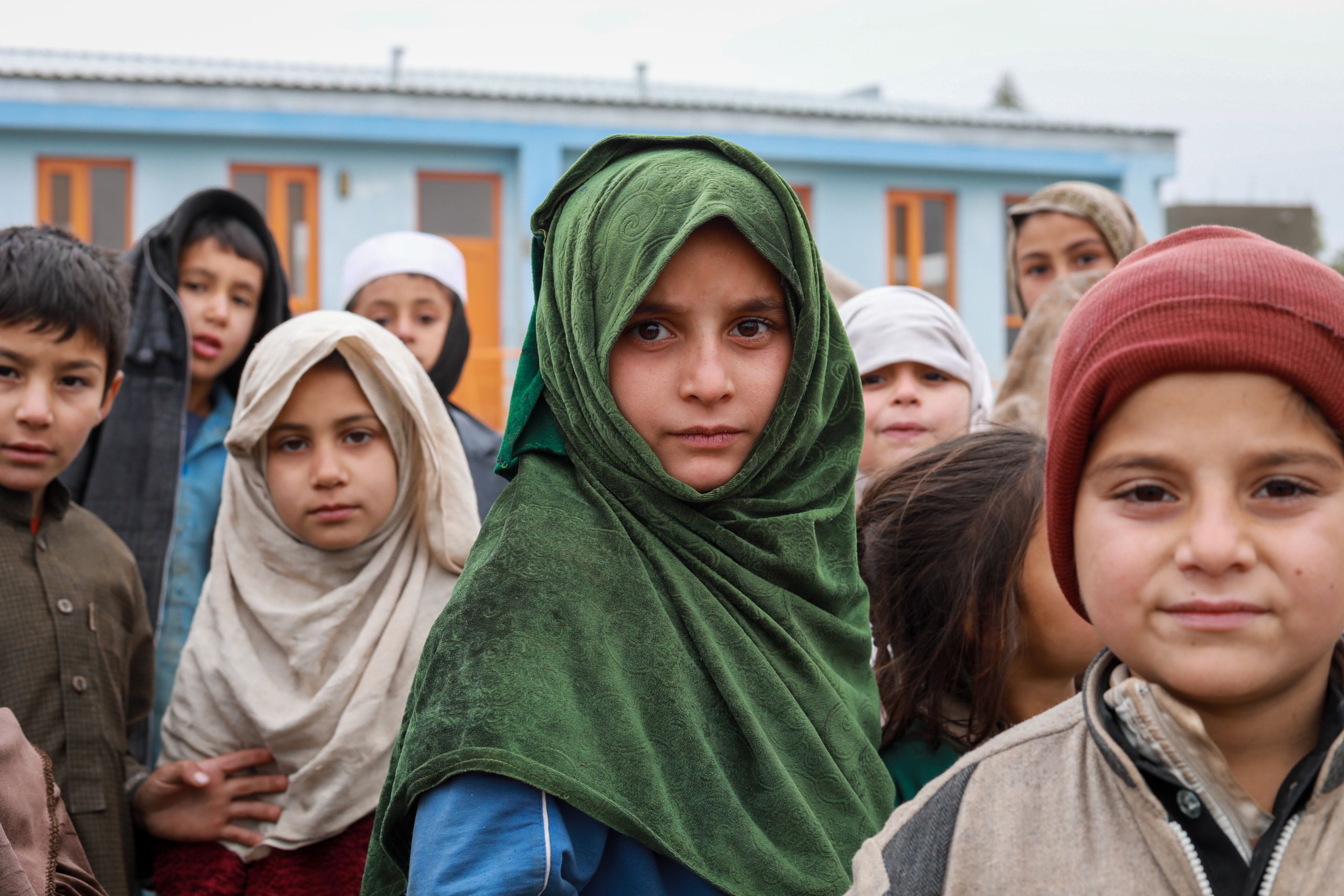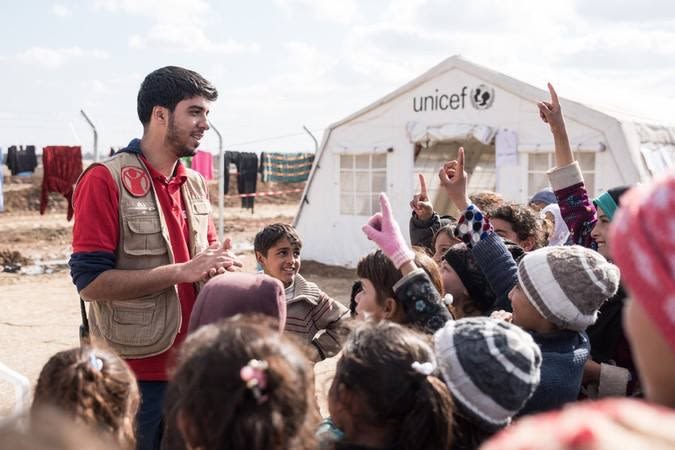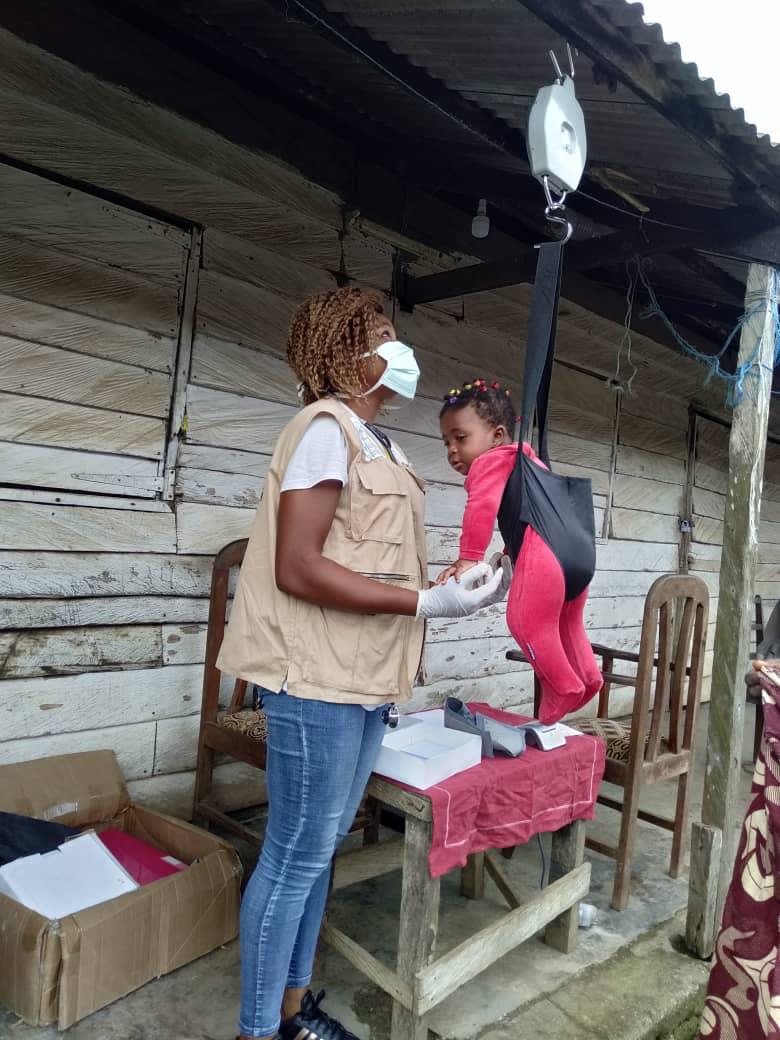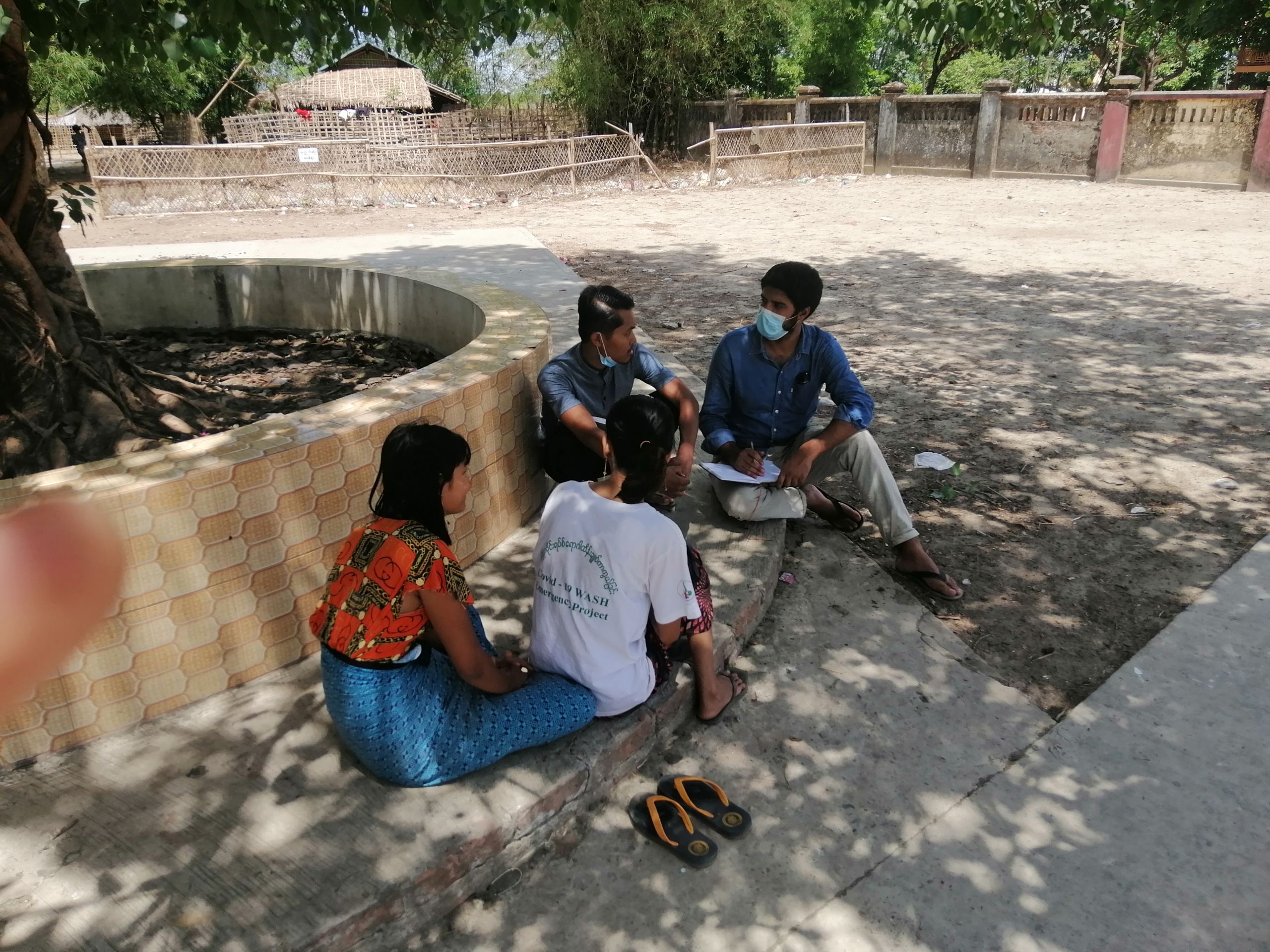Building the leaders of tomorrow

War creates chaos. But what happens to the young people who live amongst the chaos?
Perhaps the boys will be coerced into joining armed groups. Perhaps the girls will be forced to marry. Maybe they will be killed. How can we ensure that these young people are able to transition into adulthood, get jobs, live happy lives, and rebuild their communities and countries in future?
We must invest in their education. Because education is not just about learning. It’s about safety, security, opportunity, self-worth and developing a sense of hope for the future.
I spoke to Craig Dean, the Norwegian Refugee Council’s (NRC) global youth specialist, about how we can work with young people to build the future leaders of tomorrow.
Invest in the leaders of tomorrow by supporting our work today.
First, we need to listen
Young people are often excluded in humanitarian work. This is partly due to how young people living in conflict-affected countries are perceived. “People often only look at youth in the humanitarian world in the context of countering extremism,” says Craig. “They’re looked at and treated as a threat, which is ridiculous!”
When young people grow up in chaotic situations where they’re denied their basic human rights and have had their worlds turned upside down, it’s understandable that they will want to take extreme risks as a last resort. But as an expert working with youth in humanitarian contexts, Craig says that these young people shouldn’t be seen as threats. The vast majority of youth, even when they’re confronted with war and conflict, only want to improve their lives and the lives of their families and communities. Youth are an opportunity, not a threat.
“In the youth team here at NRC we are trying to tackle the negative perception of youth as a threat. They should be partnered with, listened to. They have specific needs due to their age that are different to children and adults.”
“In fact,” Craig continues, “why are you talking to me? You should be talking to a young person who has been affected by crisis…”
Hannah Etchi is a 27-year-old humanitarian nurse and youth activist in Cameroon. Her country is currently facing three separate humanitarian crises.
Amd Rasho, 29, is a Syrian, currently working as NRC’s Education Programme Manager in Sittwe, Myanmar. He was a student at the University of Aleppo when the Arab Spring protests in Syria turned deadly.
Both have experienced what it is like being a young person living in chaos, and both are passionate about investing in youth. They have a unique perspective on how we should support young people who have the potential to rebuild their countries in future.
Building confidence
Amd grew up in Aleppo and felt the devastating impact the conflict had on his home city, and the lives of the people living there.
“I was in my early 20s when the Syria conflict started. I couldn’t see a way to continue living there,” remembers Amd.
“Access to education became difficult and dangerous, especially for young men, due to state of insecurity and violence. This is why I wanted to leave. I started feeling helpless, not productive. I just lost hope that things were going to get better.”
Amd endured a terrifying journey through Islamic State group territory to reach safety in the Kurdistan Regional Government area of Northern Iraq. This is where, with the help of education, a world of opportunities opened up.
“When I arrived in Iraq, I didn’t know my potential. I didn’t know my skills.”
“When I arrived in Iraq, I didn’t know my potential. I didn’t know my skills,” says Amd. “But the teachers were really good with me. They tried to give me a sense of self-worth, individuality, and they listened to my opinions about things. The teachers would ask me to come to the front of the class, and say ‘Amd, do you want to share your opinions on that paragraph?’ for example.”
“And that’s when I discovered that I was actually a really confident public speaker. That was one of the skills that I had never, ever, discovered before. And that started to give me confidence. A lot of confidence, actually.”
Amd applied his newfound confidence and jumped on the opportunity to apply for a job in the humanitarian sector.
“I aced the interview because I had this new confidence. This helped me to unlock and discover more skills.”

Amd speaking to a group of children while working for Save the Children in Iraq. He was 25 at the time. Photo: Save the Children International
Amd speaking to a group of children while working for Save the Children in Iraq. He was 25 at the time. Photo: Save the Children International
Amd believes that we need to recognise the individual potential that young people around the world have.
“It annoys me that young people from some countries can be treated as numbers,” he says. “And those from other countries have rights: they can voice their opinions and can speak out. When I work with young people through my work with NRC, I try to make them more empowered.
“It’s important to promote dignity and self-worth as an individual. Because that helped me a lot. When I was treated as a number, I didn’t speak out. And then when I was treated as an individual, it unlocked so much.”
IRAQ: Ahmad, 18, recently completed a hairdressing course run by NRC. After finishing the training, he opened a barbershop with one of his friends. Now he makes enough money for himself, but he hopes that in the near future, he’ll earn enough money to support his family.
The opportunity to work
In many countries, refugees are unable to work due to policy restrictions or lack of opportunities. Few people can sit around idly without doing something to improve their situation. This is something that Hannah Etchi feels is most devastating for the young people in her homeland of Cameroon.
“If young people can’t get a job and don’t have anyone to assist them, at the end of the day, they’re wandering the streets,” says Hannah.
“Most of the youths in my country are unemployed. The young generation, we are still vibrant, we are still active, we have the skills, but we do not have the opportunities. And this is why some have engaged in the conflict. They’re trying to fight for the thousands of young people who are unemployed, and the crime rates just keep increasing.”
Hannah found her purpose by becoming a humanitarian nurse. She now works for an aid organisation, providing healthcare to people living in displacement areas. She is also a Youth Compact Champion, a programme supported by NRC.

Hannah works as a nurse for an NGO called Reach Out. Photo: Private
Hannah says that in Cameroon, unemployment not only increases crime rates among young people, but also teenage pregnancies and depression.
The negative impacts of unemployment can be seen all over the world. A recent study by the Health Foundation found that 43 per cent of unemployed people in the United Kingdom had poor mental health. Being unemployed can make you lose your sense of purpose and can lead to negative coping mechanisms.
“We should all be given equal opportunities,” says Hannah. “We need to support youth. If you give young people the opportunity to work, it will not only curb unemployment rates, it will also reduce crime, untimely deaths, and unwanted pregnancies.”

Hannah works as a nurse for an NGO called Reach Out. Photo: Private
Hannah works as a nurse for an NGO called Reach Out. Photo: Private
CENTRAL AFRICAN REPUBLIC (CAR): “I had to stop school when I was nine years old. Since then, I have been idle with no work to do,” says Assania Ali. “But today I have this sewing career that I’m pursuing.”
Assania smiles as she sews alongside a fellow apprentice at NRC’s youth workshop. The workshop was set up to help the many young people in CAR that were lacking employment opportunities due to the chronic violence and instability in the country.
“Now that I have learned how to sew, I want to become a great tailor. The best tailor in this town!” she says.
Working with youth
NRC worked with hundreds of thousands of displaced young people since 2003.
Our education programmes for young people are adapted to different ages and contexts.
In some places, where young people have missed out on basic education due to war and displacement, we provide catch-up classes in subjects such as literacy and numeracy and support them to re-enter the formal education systems.
In others, where youth struggle to find work, we focus on vocational subjects that help them access and thrive in the labour market.
For example, when there has been a war, there can be a gap in the construction market. We train young people to fill this gap so that they can rebuild their countries brick-by-brick.
All of our programmes for youth have a life skills component, such as communication, teamwork, conflict resolution and reproductive health. We continue to invest young people’s well-being and encourage the action they take to support their communities.
In places where there are no jobs, such as Hannah describes in Cameroon, we support young people in setting up their own businesses. We provide the training, the skills and the tools.
Invest in the leaders of tomorrow by supporting our work today.
The ripple effects
Young people are incredibly resilient. When they’re faced with crisis, they’re often the ones on the frontline, helping their community. But they need opportunities. “Einstein was a refugee,” Craig points out. “Look what he brought to the world when he was given the chance.”
When you provide a young person with opportunities, it casts a ripple effect.
“If I could change one person’s life, or one child’s life, that would mean everything,” says Amd passionately. “If you change that one person’s life, it changes the lives of those around them.
“I’m using my personal experience to support children and young people through my role at NRC.”
“I’ve been able to benefit my brothers, my sisters, my family a lot. And now I’m using my personal experience to support children and young people through my role at NRC. It’s about making people realise their self-worth and it can change their lives. And that really excites me!”

Amd speaking to a group of young people in Myanmar, where he now lives and works. Photo: Private
Amd speaking to a group of young people in Myanmar, where he now lives and works. Photo: Private
Thanks to Craig Dean, Hannah Etchi and Amd Rasho for generously sharing their thoughts and experiences.

